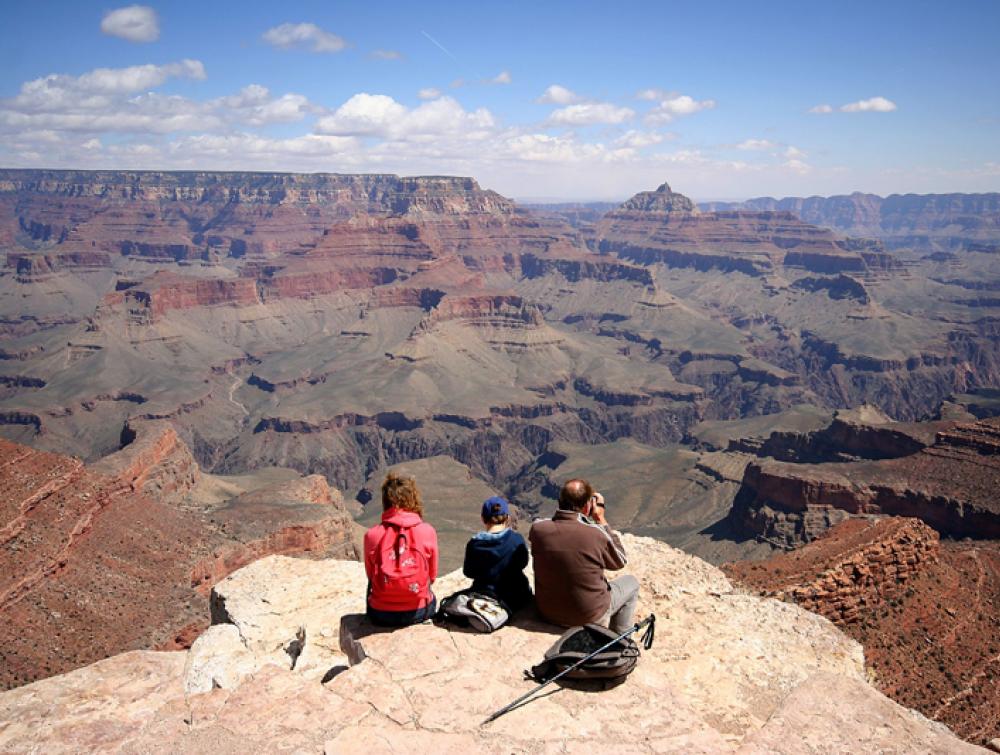White House nuclear energy report could threaten Grand Canyon

Grand Canyon National Park, Arizona
Bob the Lomond, Flickr
Nuclear Fuel Working Group Poised to Make Recommendations that Threaten Grand Canyon
MEMO TO PRESS
The White House Nuclear Fuel Working Group is poised to submit recommendations to President Trump to boost the domestic uranium mining industry in ways that could have profound effects on sensitive public lands including Bears Ears National Monument, the Grand Canyon region and many others. TWS is concerned the group of senior administration officials will sacrifice the health and well-being of local communities as well as wildlife and cherished public lands in an effort to enrich private uranium mining companies.
What is the U.S. Nuclear Fuel Working Group?
Earlier this year, two uranium mining firms petitioned the Commerce Department and the White House to institute domestic uranium quotas to artificially boost the domestic uranium mining industry – by claiming that imports of nuclear fuels constituted a national security risk. In July, President Trump signed a memorandum denying the petition and instead created the United States Nuclear Fuel Working Group which was directed to issue recommendations to the President to address concerns related to the impacts of imported uranium on domestic mining. After missing their initial 90-day deadline (10/10), the Working Group was granted a 30-day extension. Based on the reporting the exact date of this new deadline is unclear, but by any measure it has either recently passed or will within the next few days.
What can we expect?
The domestic mining industry and some of their congressional allies, particularly in the Congressional Western Caucus have been advocating for essentially two major actions to prop up the domestic uranium mining industry:
- Subsidies or direct purchases by federal agencies. Similar to quotas this would artificially inflate the value of domestic uranium mining assets by using taxpayer funds to purchase or offset the cost of third-party purchases of domestically mined uranium.
- Open currently protected lands to new mining. The Nuclear Energy Institute recommendation letter to the Working Group and the Western Caucus letter both call for the Working Group to recommend lifting withdrawals and “improving access” to uranium deposits on public lands. The Western Caucus Chair Rep. Gosar’s press release on the letter makes clear this is aimed squarely at the current Grand Canyon withdrawal area.
Why this is concerning for sensitive public lands like the Grand Canyon and Bears Ears?
Subsidizing domestic uranium would use taxpayer funds to essentially pay mining companies to exploit areas like the Grand Canyon watershed, Bears Ears and Grand Staircase-Escalante National Monuments. Polluting industries like uranium mining have already left a legacy of negative health impacts within Native American communities. They also pose a threat to tribal cultural resources and sacred sites. Groundwater contamination could severely harm both the physical and economic health of communities surrounding these iconic parks and public lands. Subsidizing the domestic mining industry could make currently undeveloped mining claims in these areas economically viable and promote irresponsible and damaging development. This on top of the fact that hardrock mining companies already pay no royalties for minerals extracted from public lands nor are their safeguards to ensure they pay for any cleanup if they go bankrupt. This has already led to a legacy of abandoned and polluting hardrock mines across the west.
Further lifting the current moratorium on new mining claims within the lands adjacent to the Grand Canyon would jeopardize one America’s most iconic treasures, compounding the industry giveaway at the expense of taxpayers, tribes, and public.
For more information contact Tony Iallonardo at tony_iallonardo@tws.org or 202-429-2699.
